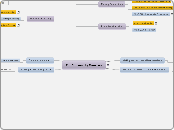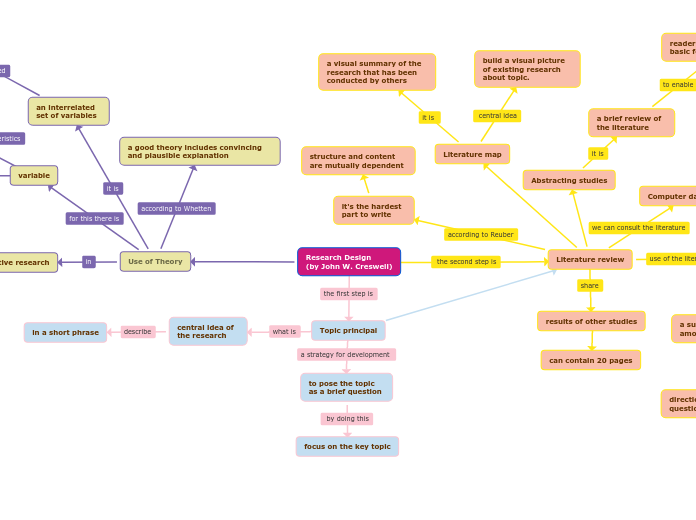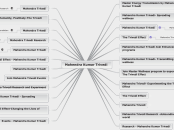For Researchers
Education & Training
CHC: Regional Research Meetings/Forums
- A bi-directional communication platform for UW and local research/projects
- Opportunity to present/disseminate research to a group of community and academic stakeholders with broad health interests and expertise.
- Provide the appropriate audience for dissemination (health systems, coalitions, public health, etc.)
- Feedback provided to presenter by the audience in terms of translational feasibility and opportunities for replication.
- Opportunity for community members to present/disseminate their research to a specifically targeted audience with like expertise.
- Community Health Connections Regional Coordinators conduct follow up interviews with presentation audiences looking for evidence of implementation, and provide that feedback to researchers
MCRF CAP: Training/Mentoring
CHC: Education & Capacity-building
- Send IME video links and lists of topics developed by the CAP Education Group as resources to individuals as well as broader groups
- Provide information on and examples of roles and responsibilities in a community academic partnership
- Sponsor workshops on community driven topics: Grant writing, Grant seeking, Accessing online library resources, Evaluation
Research consultation & assistance
CHC: Consultations
- Developing research questions
- Project ideas
- Grant proposals and submissions
- Identifying an appropriate and receptive academic partner through already established relationships and knowledge. Eliminates cold calls and provides an introduction either via email or in person.
- Identifying a community partner through already established connections and trust.
- Assistance in helping define roles and responsibilities in a community academic partnership
MCRF CAP: Implementation/Dissemination
MCRF CAP: Project Implementation/Support
MCRF CAP: Core Data Development/Facilitation
MCRF CAP: Study Design/Development
MCRF CAP: Study Idea Consulting
Promotional activities
MCRF CAP: Promotion
CHC: Social media
Facebook page includes: Funding announcements, Workshop announcements, Webinar announcements, Community Engaged Research
Making Connections
MCRF CAP: Community Engagement
The MCRF CAP core can serve as a conduit to various community engagement activities occurring through the MCRF Epidemiology Research Center, the Marshfield Clinic Center for Community Outreach, the MCRF National Farm Medicine Center, and regional Marshfield Clinic care centers in rural northern Wisconsin. Available or developing community links include the Marshfield farm resident cohort, Marshfield Clinic Dental Patients, a Community Health Assessment portal, and the Northwoods Coalition of more than 40 rural community coalitions in northern Wisconsin.
CHC: Referrals to and support of other programs
- Healthy Wisconsin Leadership Institute
- Wisconsin Partnership Program
- Survey of the Health of Wisconsin (SHOW)
- County Health Rankings, What Works?, RWJF MATCH
- Other community engagement programs of ICTR: WREN, CCHE, Practice Based Public Health Nursing Network, WINHR
CHC: Regional Research Coordinators
For both Communities and Academics. Located within the community as local points of access and liaisons to the UW and ICTR. Coordinators are a trusted University presence in the community, building bridges from academia to communities throughout Wisconsin.
Research Databases
MCRF CAP: Other defined patient cohorts
Formal standardized data resources on primary care, insurance claims, and inpatient stay populations are also being established to support 2-site collaborations with UW ICTR investigators. Other relevant patient cohorts have been assembled on an ad hoc basis to support development and conduct of funded research.
MCRF CAP: HMO Research Network VDW
VDW - Virtual Data Warehouse
The VDW contains a dynamic cohort of Security Health Plan insured members which can be studied alone or in combination with MESA residents, and includes standardized data on encounters, diagnoses, procedures, medications, labs, vital measurements, and mortality (n=175,000 at a given point in time). The VDW can be used locally or to support collaborative research with national partners from the HMO Research Network.
MCRF CAP: Marshfield Epidemiologic Study Area (MESA)
MESA is a validated 24-ZIPCode region where nearly all of the 80,000 residents choose to receive care from Marshfield Clinic and its affiliated partners. The Epidemiology Research Center monitors and maintains a data file of residency records for the dynamic cohort of patients living in this region since 1991 (n=200,000+), which can be linked to the Marshfield Clinic data warehouse archive of clinical and administrative data for population-based research.
CHC: Community Research Database
Maintain a database inventory of academic and community research interests and projects – 324 community members from throughout Wisconsin, 336 academics from throughout Wisconsin Universities
For Community Members
Define "what's the point of viewing this?" for community
Constituents:
Community Research Partners: people in community clinics, public health agencies, schools, and community- and faith-based organizations
Target populations: defined by geography; race; ethnicity; gender; sexual orientation; disability, illness, or other health condition
Agencies or organizations who take on health concerns of their constituencies
Community-based health care-providing organizations: non-academic (such as Marshfield Clinic)
Lay groups with public health concerns: example: the National PKU Alliance http://www.npkua.org/
Organizations that may be involved in the research process as members or representatives of the community: including (but are not limited to) tribal governments and colleges, state or local governments, independent living centers, other educational institutions such as junior colleges, advocacy organizations, health delivery organizations (e.g., clinics, hospitals, and networks), health professional associations, non-governmental organizations, and Federally-qualified health centers.
Finding evidence for practice
Ebling Library research lit search service
Community members
MCRF CAP: Collaborator/Partner Matching
Becoming a research partner (education)
ICTR CAP online education offerings/certificate
Making connections with researchers
Wisconsin Partnership Program









